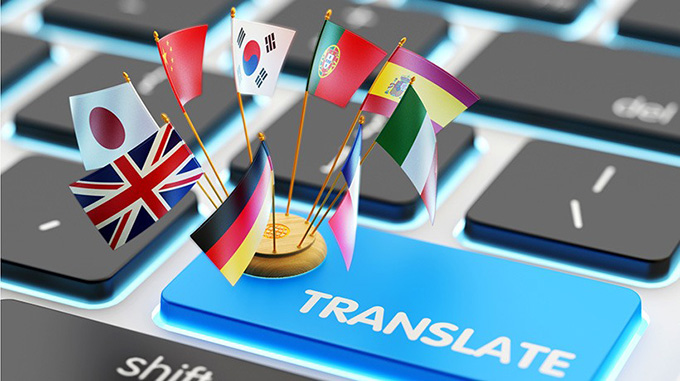
Maybe you are lucky enough to be fluently bilingual or even trilingual and hope to capitalize on these advantages. Or perhaps you just love the challenges of mastering a foreign language and helping people communicate across linguistic borders. Regardless of your motivation, there are best practices, tips and tricks to help you prepare for a career in translation. We’ll help you get started in the right direction or in making a timely course correction.
Translators, Interpreters, Transcribers: Segmenting Language Services
While translation is often used as a broad catch-all for linguistic professions, it’s a good idea to break the category down into smaller segments. Linguistic professions comprise translators, who adapt text documents from one language to another, and interpreters, who convert words spoken in one language to another. There are also transcribers or transcriptionists, who translate spoken or recorded words into written ones, either into the same language or a different one.
Some individuals with bilingual or trilingual skills can do all of the above, while others prefer to concentrate on either translation, interpretation or transcription. We’ll touch on each of these various options, but it’s good to bear these distinctions in mind. Which of these you choose is a matter of personal preference as well as professional skill level and market demand.
Which Markets are Most Likely to Need Your Translation?
Traditionally, organizations like governments, international agencies and multinational corporations have been primary employers of linguists. In the past, translators, interpreters and transcriptionist were hired as full-time, in-house staff. However, in recent years, due to budgetary pressures and the growth of the internet, many of these specializations have been outsourced to agencies and freelancers.
Increasingly, however, these kinds of specialized language services have been taken over by independent companies providing linguistic services to corporate or governmental clients. A translation agency often serves as a “one stop shop” for such services and may have hundreds or even thousands of linguist under contract to meet the on-demand needs of its clients.
There is also a fast-growing trend for translators and other linguists to work as independent contractors. Many online marketplaces like Upwork or Freelancer.com provide a platform for skilled linguists to offer their services to the world. This has the advantages of freedom and flexibility because one is not bound to a single or primary employer. They can work anywhere and build up a location-independent career.
What Should You Study in College to Get Started in Translation Services?
There’s no strict requirement to become a professional translator. A bachelor’s degree and at lea few years of experience is the usual expectation. That said, it’s possible for someone who was raised in a bilingual family to develop sufficient skills to work as a translator or interpreter without any higher education. However, without question, college and university courses can strengthen and broaden linguistic skills.
Naturally, many translators choose to study, either as major or minor, a specific language or combination of languages. Many colleges and universities offer departments in French, German, Spanish or other specific linguistic disciplines. This is perhaps the most common course of preparation for a career in translation.
However, many professional translators preferred to pursue studies in more general branches of the humanities, such as psychology, philosophy, anthropology or even religion. All of these disciplines are based on the powers of language and intercultural communication. These are not replacements for the ability to convert one language to another, but this broader training can still provide a conceptual framework that will stand a future translator in good stead.
What if you are a science or math geek? Is a career in translation off the table? The answer is: not ideal but not impossible. Even if you have an undergraduate B.Sc. or another non-verbal degree, there are both graduate course and online courses aplenty to increase your knowledge and skill set to a point where you have both the abilities and credentials to land a job. Some translation companies will offer on-the-job training to their staffs to improve skills, provide formal certification, and instill best practices.
Getting Your Tongue Wet: Does Translation Experience Trump Education?
Even during school years, seek translation and interpretation gigs. Helping friends and people in your local community can gain experience and confidence, building relationships that can help you gain traction in the job market later.
Most freelance marketplaces let you to “post your shingle” online, describing your interests and capabilities. Use your profile page to collect positive reviews and recommendations. Describe your success stories.
One great avenue to gain positive feedback is volunteering to help indigent individuals with linguistic tasks. You’ll feel good about assisting the needy, while gaining friends and allies who can help you land future work.
Play the long game. Charge low rates to get experience and positive reviews, then gradually increase your compensation as your reputation grows. Instead of being lost in the translation job market, you’ll find yourself winning gigs and attracting job offers
